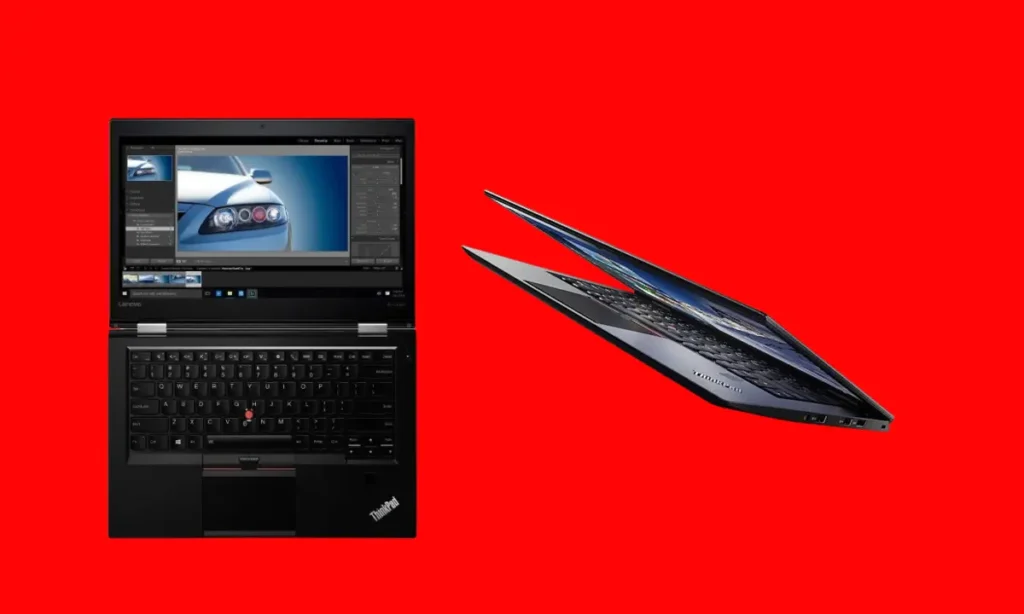What is an Ultrabook Laptop: The Ultimate Guide to Portable Performance
In today’s fast-paced digital world, portability and performance are two key factors that drive the evolution of personal computing devices. Enter the Ultrabook a class of laptops that has redefined what it means to be thin, light, and powerful.
But what exactly is an Ultrabook, and why has it become such a popular choice among professionals, students, and tech enthusiasts alike?

This comprehensive guide will delve into the world of Ultrabooks, exploring their features, benefits, and how they stack up against other laptop types.
What is an Ultrabook?
An Ultrabook is a high-end subtype of laptop computers defined by Intel in 2011. These devices are designed to strike the perfect balance between portability, performance, and battery life. Ultrabooks are characterized by their:
- Ultra-thin design (typically less than 20mm thick)
- Lightweight construction (usually under 1.5 kg or 3.3 lbs)
- Powerful processors (often Intel Core i5 or i7)
- Solid-state drives (SSDs) for faster data access
- Long battery life (typically 8+ hours)
- Quick boot and wake times
The term “Ultrabook” was initially a trademark of Intel, but it has since become a generic term for any ultra-thin, high-performance laptop.
Key Features Ultrabook
Ultrabooks stand out from traditional laptops due to their unique combination of features. Let’s explore these attributes in detail: If you’re looking for Ultrabooks with these top features, explore our recommendations for the best models available.
1. Form Factor
The most immediately noticeable feature of an Ultrabook is its sleek and slim design. Ultrabooks are engineered to be as thin and light as possible without compromising on performance or durability.
- Thickness: Typically less than 20mm (0.8 inches)
- Weight: Usually under 1.5 kg (3.3 lbs)
- Materials: Premium materials like aluminum, carbon fiber, or magnesium alloys
This compact form factor makes Ultrabooks ideal for professionals on the go, students carrying them between classes or anyone who values portability in their computing device.
2. Performance
Despite their small size, Ultrabooks packs a punch when it comes to performance. They are equipped with:
- Processors: Usually Intel Core i5 or i7, optimized for both performance and energy efficiency
- RAM: Typically 8GB to 16GB, ensuring smooth multitasking
- Storage: Solid-state drives (SSDs) with capacities ranging from 256GB to 1TB
These components work together to provide responsive performance for everyday tasks, from web browsing and document editing to light photo and video editing.
3. Battery Life
One of the hallmarks of an Ultrabook is its impressive battery life. Most Ultrabooks offer:
- 8+ hours of battery life on a single charge
- Quick charge capabilities
- Power-efficient components to maximize battery performance
This long battery life ensures that users can work or enjoy entertainment throughout the day without worrying about finding a power outlet.
4. Display
Ultrabooks typically feature high-quality displays that balance resolution, color accuracy, and energy efficiency:
- Resolution: Often Full HD (1920×1080) or higher
- Panel Types: IPS or OLED for better color reproduction and viewing angles
- Bezels: Thin bezels to maximize screen real estate
- Touch Capability: Many models offer touchscreen options
5. Connectivity
Despite their slim profile, Ultrabooks offer a range of connectivity options:
- Wi-Fi: Usually Wi-Fi 6 (802.11ax) for fast wireless connections
- Bluetooth: For connecting wireless peripherals
- Ports: A mix of USB, Thunderbolt, and sometimes HDMI ports
6. Additional Features
Modern Ultrabooks come with a host of additional features that enhance user experience:
- Backlit keyboards for low-light use
- Precision touchpads for accurate input
- HD webcams and dual-array microphones for video conferencing
- Biometric security features like fingerprint readers or facial recognition
Advantages of Ultrabooks
Ultrabooks offer several advantages over traditional laptops:
- Extreme Portability: Their thin and light design makes them easy to carry and use on the go.
- Long Battery Life: All-day battery life means you can work or play without constantly searching for a power outlet.
- Fast Performance: Quick boot times and responsive performance for most computing tasks.
- Premium Build Quality: High-quality materials and construction for durability and style.
- Energy Efficiency: Optimized components that balance performance and power consumption.
Potential Drawbacks
While Ultrabooks offer many benefits, they do have some potential drawbacks:
- Higher Price Point: Ultrabooks are generally more expensive than traditional laptops with similar specifications.
- Limited Upgradeability: Many components are soldered to save space, making upgrades difficult or impossible.
- Thermal Constraints: The thin design can limit cooling capacity, potentially affecting performance under heavy loads.
- Fewer Ports: To maintain a slim profile, Ultrabooks often have fewer ports than larger laptops.
Who Should Consider an Ultrabook?
Ultrabooks are ideal for:
- Business Professionals: Who needs a lightweight, powerful device for work on the go?
- Students: Who wants a portable laptop for taking classes and working in various locations?
- Frequent Travelers: Who value lightweight devices with long battery life.
- Casual Users: Who prioritize sleek design and portability over raw power.
Top Ultrabook Models in the Market
Here’s a comparison of some popular Ultrabook models:
| Model | Processor | RAM | Storage | Display | Weight |
| Dell XPS 13 | Intel Core i7 | 16GB | 512GB SSD | 13.4″ 4K | 1.2 kg |
| HP Spectre x360 | Intel Core i7 | 16GB | 1TB SSD | 13.3″ FHD | 1.3 kg |
| Lenovo ThinkPad X1 Carbon | Intel Core i7 | 16GB | 1TB SSD | 14″ WQHD | 1.1 kg |
| Asus ZenBook 14 | Intel Core i7 | 16GB | 512GB SSD | 14″ FHD | 1.2 kg |
| MacBook Air (M1) | Apple M1 | 8GB | 256GB SSD | 13.3″ Retina | 1.3 kg |
How to Choose the Right Ultrabook
When selecting an Ultrabook, consider the following factors:
- Performance Needs: Assess your typical workload and choose specs accordingly.
- Battery Life: Look for models that offer at least 8 hours of real-world use.
- Display Quality: Consider resolution, color accuracy, and whether you need touch capability.
- Portability: Check the weight and dimensions to ensure it meets your mobility needs.
- Build Quality: Look for durable materials and solid construction.
- Price: Determine your budget and find the best value within that range.
- Brand Reputation: Consider the manufacturer’s track record for quality and customer support.
Ultrabooks vs. Other Laptop Categories
Here’s how Ultrabooks compare to other laptop categories:
- vs. Traditional Laptops: Ultrabooks are thinner, lighter, and often more expensive, but may have fewer ports and less raw power.
- vs. Gaming Laptops: Ultrabooks prioritize portability over gaming performance, with less powerful graphics capabilities.
- vs. 2-in-1 Convertibles: While some Ultrabooks are 2-in-1s, not all offer tablet-like functionality.
- vs. Budget Laptops: Ultrabooks offers premium build quality and performance but at a higher price point.
For a broader comparison of all the major laptop types and their functionalities, you can refer to our comprehensive guide on the different types of laptops here.
The Future of Ultrabooks
The future of Ultrabooks looks promising, with several trends on the horizon:
- More Powerful Processors: Continued advancements in CPU technology will bring even more power to the ultra-thin form factor.
- Improved Battery Technology: Expect to see even longer battery life and faster charging capabilities.
- Advanced Display Technologies: Higher resolutions, better color accuracy, and potentially foldable displays.
- Enhanced Connectivity: Wider adoption of technologies like 5G for always-on connectivity.
- Artificial Intelligence: Integration of AI capabilities for improved performance and user experience.
FAQs About Ultrabooks
- What makes a laptop an Ultrabook?
An Ultrabook is characterized by its ultra-thin design, lightweight construction, powerful processors, SSD storage, and long battery life. - Are Ultrabooks good for gaming?
While Ultrabooks can handle casual gaming, they’re not typically designed for high-end gaming due to thermal constraints and less powerful graphics capabilities. - Can I upgrade the components in my Ultrabook?
Upgradeability is often limited in Ultrabooks due to their compact design. RAM and storage are frequently soldered to the motherboard. - How long do Ultrabooks typically last?
With proper care, an Ultrabook can last 3-5 years or more, depending on usage and technological advancements. - Are Ultrabooks worth the higher price tag?
For users who value portability, performance, and premium build quality, Ultrabooks can be a worthwhile investment. - Can Ultrabooks handle video editing and other demanding tasks?
Higher-end Ultrabooks can handle light to moderate video editing and other demanding tasks, but for professional-level work, a more powerful workstation might be necessary. - How do Ultrabooks compare to tablets with keyboard attachments?
Ultrabooks generally offer more power and a more laptop-like experience, while tablets with keyboards prioritize ultimate portability and touch-first experiences. - What’s the difference between an Ultrabook and a regular thin-and-light laptop?
While the terms are often used interchangeably now, Ultrabooks originally had to meet specific criteria set by Intel, including thickness, wake-from-sleep time, and battery life.
Conclusion:
Ultrabooks represent the cutting-edge laptop design, offering a compelling blend of portability, performance, and premium features. While they may come with a higher price tag, the benefits in terms of mobility and productivity make them an attractive option for many users.
Whether you’re a business professional needing a reliable travel companion, a student looking for a lightweight yet capable laptop, or simply someone who appreciates sleek design and efficient performance, an Ultrabook could be the perfect choice for you.
As technology continues to evolve, we can expect Ultrabooks to become even more powerful and versatile, further cementing their place in the world of mobile computing. The future of laptops is thin, light, and powerful – and Ultrabooks are leading the way.




